

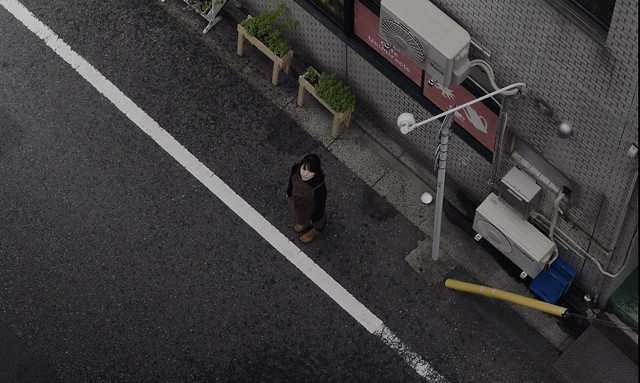
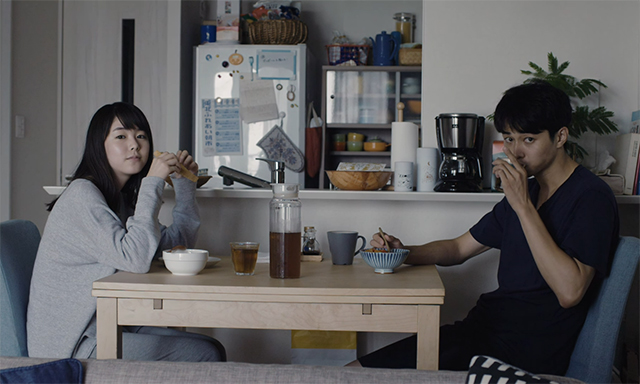
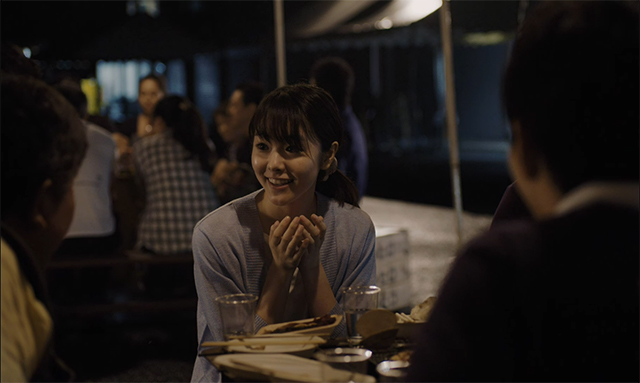

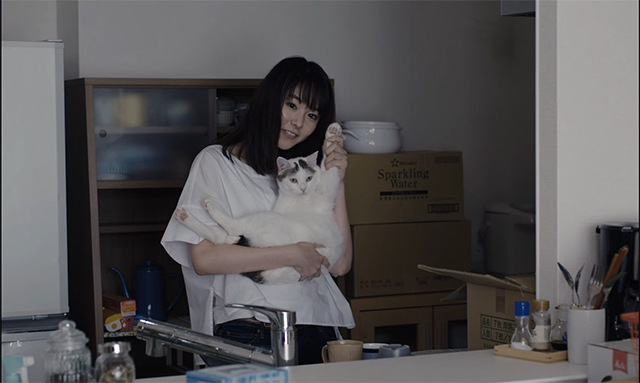

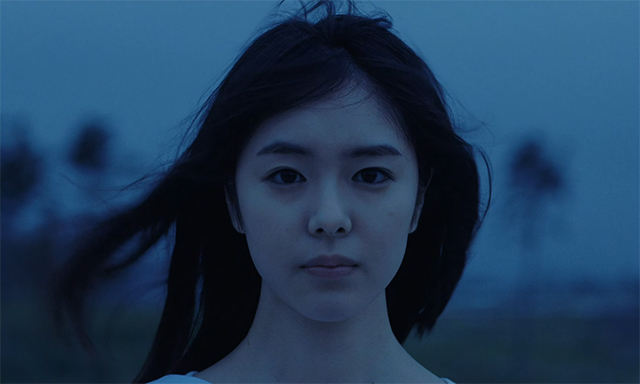

Asako (Karata Erika), a passive young girl eyes a tall, good-looking boy, Baku (Higashide Masahiro) at a gallery. With the sound and smell of firecrackers set by rowdy school boys still ringering in the air, they kiss and hook up, just like that. They become a young couple very much in love. Asako's dependency on Baku is total. But always aloof, he disappears for days on end without explanation. Her friends warn her that he will break her heart one day. And one day, Baku goes out for errand and never comes back. At this point, I am expecting some existential, poetic drama along the lines of Maborosi or Before We Vanish. But I'm wrong.
It's been five years. Asako relocated from Osaka to Tokyo, has an stage actress roomate and works at a coffee shop. While delivering coffee at a coporate conference at the building across, she is shocked by a presence of Baku. But it's not him. His name is Ryohei (Higashide again in a double role) who works for a sake sales company. In turn, Ryohei is extremely intrigued by Asako who seem to have an extreme aversion to his presence. It's her shy but clear, direct stares that draws him in. After multiple attempts with the help of his Chekov quoting, English speaking colleague as a wingman, they hook up. It takes a long time for Asako to finally get over her first love and fall in love again to another man, a very different man who is down to earth and real.
Then Baku shows up in Asako's life again. Now a famous model, he turns Asako's life upside down.
Based on Shibasaki Tomoka's novel Netemo sametemo - Waking and Dreaming, the film tackles on letting go of the first love from a woman's point of view in a very unique way. Hamaguchi has a great sensitivity dealing with delicate subject and make his actors shine. Young Karata embodies depth and mystery of a young woman coming out of her shell without compromising her core self, while Higashide shines in dual roles with great empathy and maturity. All the supporting roles are also great and well drawn out. It is refreshing to see a Japanese film that is modern and direct and not trying to be overtly Ozu-y or arthouse poetic or genre-y, yet very Japanese. I very much appreciate Hamaguchi Rusuke's work.